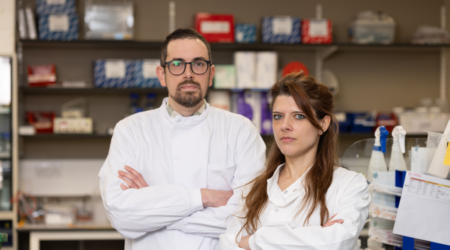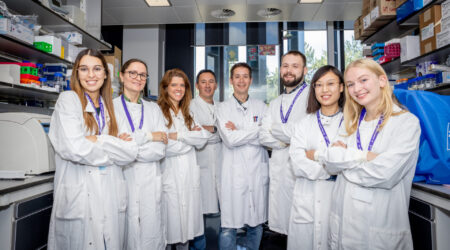Better treatments save lives. It is vital that as well as improving the early detection of pancreatic cancer, we also learn how to treat it better. Current treatments are limited and highly toxic – and people with pancreatic cancer are often too unwell to tolerate the challenging side-effects they cause.
We are investing in cutting-edge research which aims to:
1. Develop and discover new treatments
We will focus on building our knowledge of the unique underlying biology of pancreatic cancer tumours and the surrounding cells to help us improve current therapies and ultimately develop the world’s first treatments specifically designed to target pancreatic cancer. We will support innovative research that will help us to understand how pancreatic cancer cells grow and spread so aggressively and how they influence nearby healthy cells to protect them. We will learn how current treatments, like chemotherapy, radiation and immunotherapy, that have proven to be revolutionary in other cancers, can be made more effective in targeting and destroying pancreatic cancer.
2. Enhance current treatments
There are a number of treatments available now that could improve the quality of life and survival of people with pancreatic cancer, but these are not always used routinely or effectively. We will dedicate resource and investment to help clinical researchers build the comprehensive research evidence that we need to define how nutritional, psychological and physical support can be combined. This will then be used to enhance the outcomes of surgery and chemotherapy, giving people with pancreatic cancer the maximum benefit from treatments that will help them to live well for longer, extending and saving lives.
We have a duty to start developing new treatments now or else when we achieve breakthroughs in earlier detection, we still won't be able to treat people. We need to find novel ways to better understand tumours to identify effective treatments and change the outcomes for patients.





